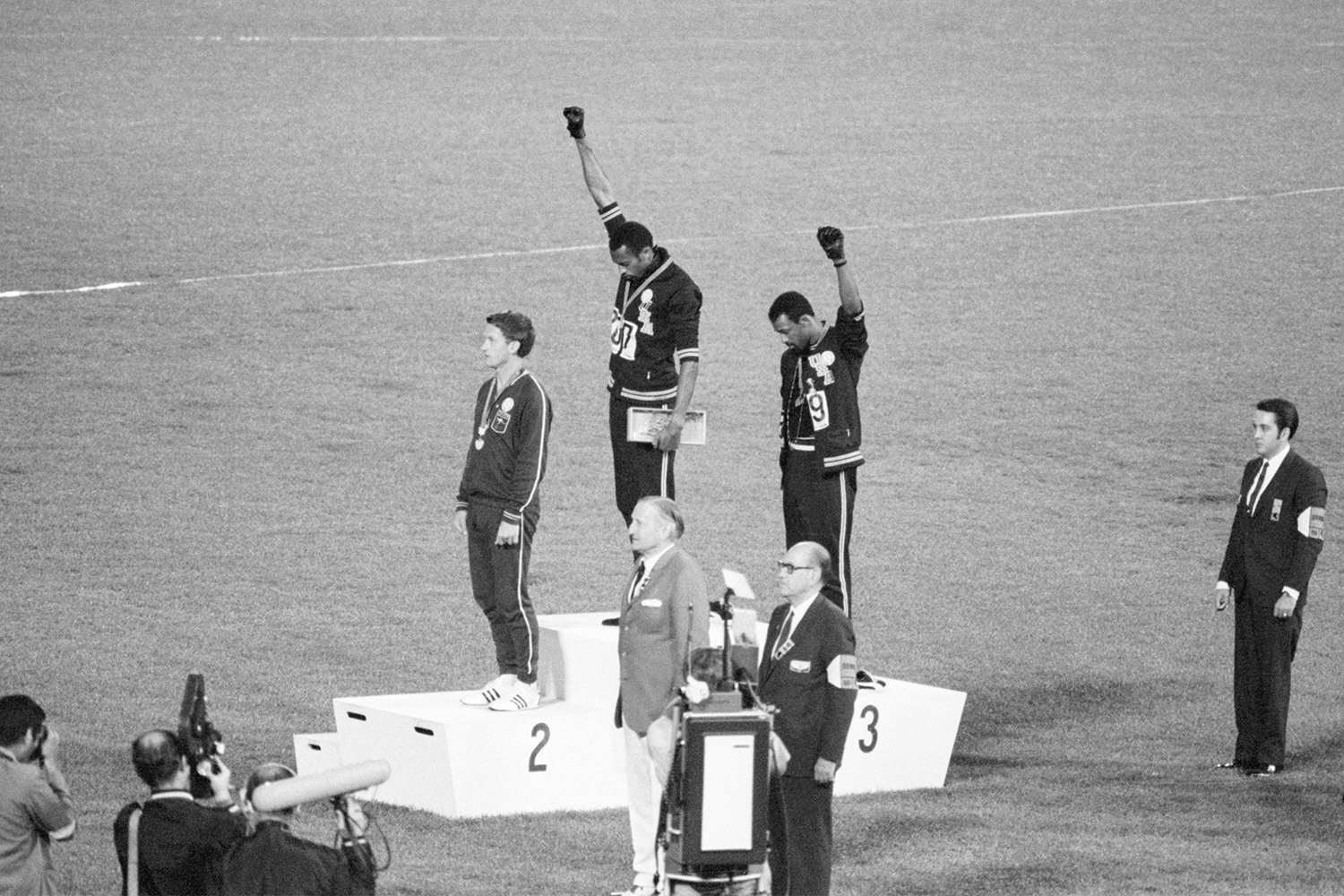After surveying more than 3,500 Olympic athletes over the past year about what they feel is appropriate on the field of play or on the podium, the International Olympic Committee is upholding a ban on political protests, including kneeling and raising a fist, at the Tokyo Games.
According to the IOC, 70% of the athletes who were surveyed said it was “not appropriate to demonstrate or express their views” while competing or during Olympic ceremonies. Due to the survey results, the IOC has opted to keep Rule 50 of the Olympic Charter on the books. It states: “No kind of demonstration or political, religious or racial propaganda is permitted in any Olympic sites, venues or other areas.”
Athletes who engage in political demonstrations, like American sprinters Tommie Smith and John Carlos famously did at the 1968 Mexico City Olympics, will risk punishment, said IOC Athletes’ Commission Chair Kirsty Coventry. It is unclear what those sanctions would be, but Coventry said a “proportionate” range of punishments will be drafted before the games, per the Associated Press. (Smith and Carlos were both expelled from the 1968 Olympics after their salute.)
“I would not want something to distract from my competition and take away from that. That is how I still feel today,” said Coventry, a former Olympic swimming champion for Zimbabwe.
In June, a group of current American athletes and Carlos urged the IOC to allow political protests.
“Carlos and Smith risked everything to stand for human rights and what they believed in, and they continue to inspire generation after generation to do the same,” the group wrote in a letter to the IOC and International Paralympic Committee. “It is time for the Olympic and Paralympic movement to honor their bravery rather than denounce their actions.”
Delayed by a year due to the pandemic, the Summer Olympics are set to begin on July 23 — if they aren’t canceled.
Whether you’re looking to get into shape, or just get out of a funk, The Charge has got you covered. Sign up for our new wellness newsletter today.
